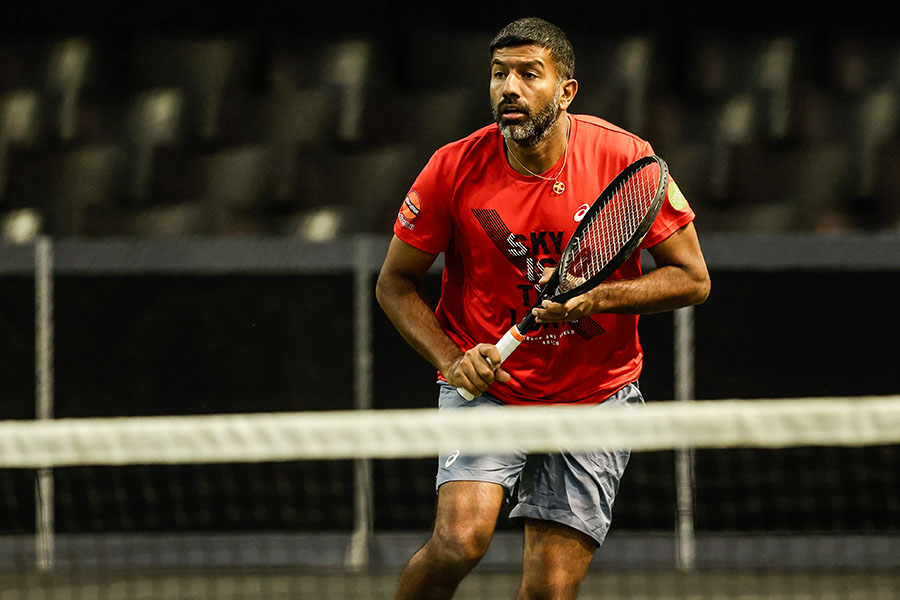Grand Slam-winner Bopanna talks about dealing with setbacks, finding positives in tough times and believing in oneself despite the odds

He might have Grand Slams in his bag, but for tennis player Rohan Bopanna, representing India on the global stage for the last 20 years has been his biggest achievement. Over these two decades, he has won 24 ATP doubles titles and is currently ranked No. 8 in the world. At 43, an age considered over the hill for an athlete, especially in a sport as physical as tennis, Bopanna recently reached the semifinal of Wimbledon along with partner Matthew Ebden. He speaks to Forbes India on his longevity, what it takes to build a champion mindset and the importance of investing in yourself. Edited excerpts:
‘Find new ways to adapt’
My biggest learning has been to find new ways to adapt no matter where you are in your career. This includes both my tennis and fitness. For instance, around mid-2019, I started having extreme pain in my knees. So, during the pandemic, I took up yoga. Initially, I found it to be slow, but over time, there was a tremendous change in my strength. I think my perseverance to improve myself constantly has helped me stay relevant for the last 20 years.
‘Invest in yourself’
I started coaching at an academy in Pune, where I stayed in a hostel which was about 15 km away. Every day, I would wake up at 5 am and cycle to the academy. If you didn’t make it for the fitness drill, you wouldn’t be allowed to play tennis—that was the rule. It was then that I learnt the importance of discipline. I only focused on becoming a tennis player without worrying about the results. Even now, as I’m getting older, my body takes longer to recover, so I’m adapting. Lately, I have started focusing on my mobility and recovery. Investing in yourself is a key part of being an athlete.
‘Put in the hard work and have self-belief’
Coming from a small village in Coorg, playing these Grand Slams seems unreal to me. I had no gym, so my dad brought this wood log, gave me a hammer, and asked me to keep hitting it every day to build strength. Those early days taught me a lot. I never take anything for granted. I believe if you put in the work and have self-belief, it will eventually show. A champion mindset can be developed over time. All the challenges that an athlete goes through are part of the learning experience. My mom taught me: No matter how hard everything was on the road, just try to find those small things that made you happy.
‘Communication helps you and your team grow’
Whether playing a sport or in a corporate setting, the more you communicate and understand the people you work with, the better the chances of success. This helps you and the team grow and improve. My wife, who is a psychologist, helped me communicate better. Apart from spending time on the court, we players also spend a lot of time off the court, so the key is not to always talk about tennis. It is also to create a bond and understanding. Self-analysis also helps. Sometimes, when you’re playing doubles, it’s easy to blame your partner. But I started watching myself play to analyse where I could improve and began making the change.
‘Don’t give up’
Injuries are always the toughest part of any sport. In 2006, I had a surgery on my shoulder and was out for six months. I’ve also had some bad knee issues. In those times, you aren’t sure when you will start again. It’s never easy because I can’t wake up one morning and say, ‘If I can’t play tennis, let me play some other sport now or take up another job’. This is the only job I have been doing. Your mind is constantly pushing out lots of negativity. There was a phase in 2021; I was hardly winning any matches and kept doubting myself. But tennis has taught me to find solutions and a way to get better. Two weeks later, I ended up winning my first match in five months, and it felt like winning the biggest thing in the world. After that, everything changed; I started playing better. There will always be setbacks, but you have to find a way to push through and find the positives and not give up no matter what.
source: http://www.forbesindia.com / Forbes India / Home> Special Report> From the Field / by Naini Thaker and Kathakali Chanda / July 28th, 2023

